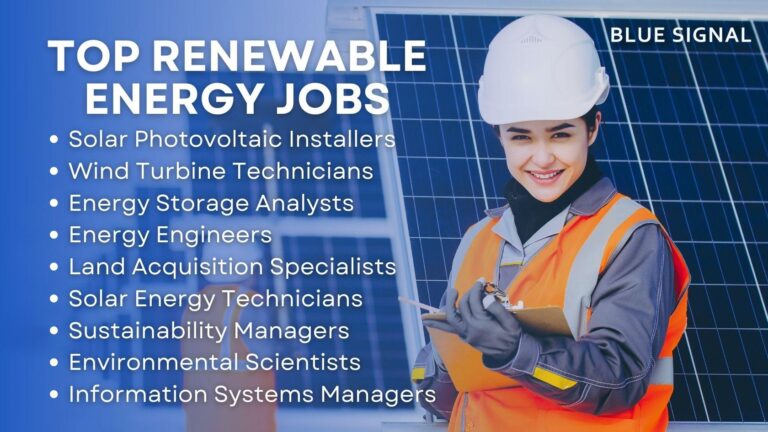The global shift towards clean energy is driving an unprecedented surge in job creation across multiple sectors, signaling a transformative economic wave.As nations invest heavily in renewable technologies such as solar, wind, and battery storage, millions of new employment opportunities are emerging, from manufacturing and installation to maintenance and innovation. This clean energy boom not only aims to reduce carbon emissions but also promises a robust labour market revival worldwide, highlighting the intersection of environmental responsibility and economic growth.
Table of Contents
- Clean Energy Expansion Drives Unprecedented Global Employment Growth
- Key Sectors Leading the Surge in Green Job Opportunities
- Challenges and Skills Gap Facing the Clean Energy Workforce
- Policy Recommendations to Sustain and Scale Job Creation Efforts
- Closing Remarks
Clean Energy Expansion Drives Unprecedented Global Employment Growth
The rapid growth of clean energy technologies has sparked an unprecedented wave of job creation across the globe. As governments and private sectors ramp up investments in renewable sources such as solar, wind, and hydroelectric power, the demand for a skilled workforce has surged dramatically. This expansion is not only reshaping energy markets but also becoming a formidable engine for economic revitalization in numerous countries, especially in regions previously dependent on fossil fuels. Analysts highlight that employment opportunities span a diverse range of roles,from installation technicians and engineers to research scientists and policy developers.
Key sectors fueling this employment boom include:
- Solar photovoltaic manufacturing and installation
- Wind turbine production and maintenance
- Energy storage system advancement
- Grid modernization and smart infrastructure
Experts emphasize that boosting workforce training and education within these areas will be crucial to sustaining growth and meeting the global emissions reduction targets. This clean energy surge presents a unique dual opportunity: accelerating climate action while creating millions of new, well-paying jobs worldwide.
Key Sectors Leading the Surge in Green Job Opportunities
Several dynamic industries are at the forefront of the expanding green job market, driving unprecedented employment growth globally. The renewable energy sector,notably solar and wind power,leads the pack as governments and corporations ramp up investments in lasting infrastructure.Job opportunities in this arena span a spectrum of roles, from engineering and project management to on-the-ground installation and maintenance. Simultaneously occurring, the electric vehicle (EV) market is accelerating rapidly, creating demand for skilled workers in battery technology, manufacturing, and charging infrastructure deployment.
Beyond energy production and transportation, other critical sectors are generating a surge in green employment. Sustainable agriculture and forestry are embracing eco-friendly practices, opening roles in land management and conservation technology. The burgeoning circular economy is transforming waste management and recycling industries, where innovation is driving new jobs focused on reducing environmental impact. Together, these sectors form a robust ecosystem of green careers, offering diverse pathways for workforce transition toward a cleaner, more sustainable future.
- Renewable Energy: solar, wind, hydroelectric
- Electric Vehicles: battery tech, production, infrastructure
- Sustainable Agriculture: eco-friendly farming, land stewardship
- Circular Economy: waste reduction, recycling innovations
Challenges and Skills Gap Facing the Clean Energy Workforce
The rapid expansion of clean energy industries has outpaced the availability of skilled professionals, resulting in a critical workforce shortfall. Many companies face difficulty in recruiting talent proficient in emerging technologies such as advanced solar panel installation, battery storage management, and grid integration.This gap is further exacerbated by regional disparities, with developing markets lacking access to comprehensive training programs.Consequently, the sector grapples with balancing immediate labor demands with long-term workforce development strategies.
Key challenges include:
- Insufficient training infrastructure tailored to evolving green technologies
- Lack of standardized certification and accreditation systems globally
- Limited cross-sector mobility as traditional energy workers transition to renewables
- The urgency to upskill existing workers without halting ongoing projects
Addressing these issues requires coordinated efforts between industry leaders, educational institutions, and policymakers to establish flexible, inclusive training pathways. Emphasizing on-the-job learning, digital skill enhancement, and gender diversity can definitely help create a resilient workforce prepared to meet the dynamic needs of the clean energy revolution.
Policy Recommendations to Sustain and Scale Job Creation Efforts
To maintain momentum and further amplify employment gains in the clean energy sector, policymakers must prioritize targeted frameworks that combine regulatory clarity with financial incentives. Introducing streamlined permitting processes can drastically reduce project lead times, encouraging private investment and accelerating job creation.Equally notable is the establishment of robust training and reskilling programs that equip the workforce with necessary competencies, ensuring inclusive access to emerging green-collar opportunities.
Additionally, fostering innovation through sustained public funding and partnerships will stimulate new technologies and markets, generating diverse employment streams. Policymakers should emphasize:
- Tax credits and subsidies for renewable energy enterprises
- Standards and regulations that promote sustainability without stifling growth
- Community engagement initiatives that ensure equitable benefits across regions
- Support for small and medium-sized enterprises in the clean tech supply chain
Together,these strategies form a resilient policy foundation critical to scaling the sector’s job creation potential worldwide.
Closing Remarks
As the clean energy sector continues its rapid expansion, the global economy is witnessing a transformative shift not only towards sustainability but also towards robust job growth. This surge underscores the critical role that renewable energy plays in shaping a more resilient and inclusive future. With ongoing investments and innovation, the clean energy boom promises to remain a key driver of employment opportunities worldwide, signaling a hopeful path forward for both the planet and its people.

